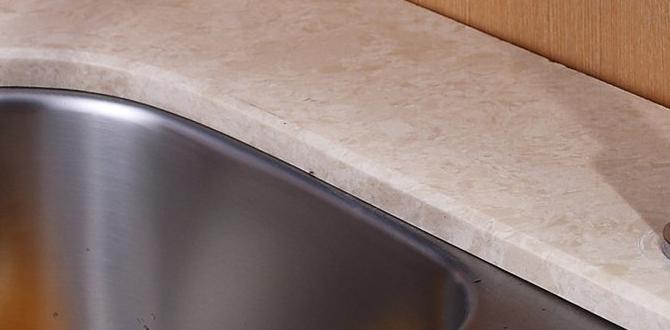Quick Summary: In early pregnancy, urine color typically remains the same – a pale yellow to gold. However, hormonal changes and increased hydration needs can sometimes lead to slightly lighter or darker urine. While changes in urine color aren’t a definitive sign of pregnancy, it’s essential to stay hydrated and consult your doctor if you notice any unusual or persistent changes, like dark or red urine, as these could indicate other health issues.
Finding out you might be pregnant is exciting! You’re probably looking for any little sign. Maybe you’ve heard that your urine color can change early on. Is it true? And what should you be looking for? Don’t worry, we’ll walk you through everything you need to know about urine color during early pregnancy. We will cover what’s normal, what’s not, and when to chat with your doctor. Let’s dive in and clear up any confusion!
Understanding Urine Color
Before we talk about pregnancy, let’s quickly cover what affects your urine color in general. It’s not always about pregnancy! Several things can change the color of your pee.
Factors Affecting Urine Color
- Hydration Levels: This is the biggest one! When you drink plenty of water, your urine is usually a light, pale yellow. If you’re dehydrated, it becomes darker, like amber or even brown.
- Diet: Certain foods can change your urine color. Beets, for example, can turn it pink or red. Other foods with strong pigments can also have an effect.
- Medications: Some medicines can alter urine color. For example, some drugs can make your urine orange or blue-green.
- Medical Conditions: Certain health issues, like liver problems or urinary tract infections (UTIs), can change urine color.
Urine Color in Early Pregnancy: What to Expect
So, what about pregnancy? Does that change things? Well, yes and no. Here’s a closer look at what you might see.
Typical Urine Color Changes in Early Pregnancy
In early pregnancy, many women don’t notice a significant change in their urine color. It usually stays within the normal range of pale yellow to gold. However, some women may experience subtle changes due to:
- Increased Hydration: Pregnant women are often advised to drink more water. This can lead to lighter, almost clear urine.
- Hormonal Changes: Hormones like hCG (human chorionic gonadotropin) surge during early pregnancy. While they don’t directly change urine color, they can affect kidney function, which might cause slight variations.
- Morning Sickness: If you’re experiencing morning sickness with vomiting, you might become dehydrated. This can result in darker urine.
The Role of Hydration
Staying well-hydrated is super important during pregnancy. Water helps support the increased blood volume and provides nutrients to your baby. Aim to drink at least eight glasses (64 ounces) of water each day. You might need even more if you’re active or live in a hot climate.
How to stay hydrated:
- Carry a water bottle with you and refill it throughout the day.
- Set reminders on your phone to drink water.
- Eat water-rich foods like fruits and vegetables (watermelon, cucumber, etc.).
- Drink water before, during, and after exercise.
Decoding Different Urine Colors During Pregnancy
Let’s break down what different urine colors might mean during pregnancy.
Pale Yellow to Light Gold
This is generally a good sign! It means you’re well-hydrated. Keep up the good work!
Dark Yellow or Amber
This usually indicates mild dehydration. Try drinking more water. If the color doesn’t improve, consult your doctor.
Orange
Orange urine can be due to dehydration, certain medications, or liver problems. If you’re taking new medications, check the side effects. If the orange color persists, contact your doctor to rule out liver issues.
Pink or Red
This can be alarming, but it’s not always serious. It could be from eating beets or other deeply pigmented foods. However, it can also indicate blood in the urine, which could be a sign of a UTI, kidney stones, or other problems. Always consult your doctor if you see pink or red urine, especially during pregnancy.
Blue or Green
This is rare and is usually caused by certain medications or food dyes. If you haven’t taken anything unusual, see your doctor to rule out any underlying medical conditions.
Cloudy Urine
Cloudy urine can indicate a UTI, kidney stones, or dehydration. If you also have pain or a frequent urge to urinate, it’s likely a UTI. See your doctor for diagnosis and treatment.
| Urine Color | Possible Causes | What to Do |
|---|---|---|
| Pale Yellow to Light Gold | Good hydration | Keep up the good work! |
| Dark Yellow or Amber | Dehydration | Drink more water |
| Orange | Dehydration, medications, liver problems | Check medications; consult doctor if it persists |
| Pink or Red | Food, blood in urine, UTI, kidney stones | Consult your doctor immediately |
| Blue or Green | Medications, food dyes (rare) | Consult your doctor if unexplained |
| Cloudy | UTI, kidney stones, dehydration | Consult your doctor, especially with pain or frequent urination |
When to Consult a Doctor
While changes in urine color can be normal during pregnancy, some situations warrant a call to your doctor. Don’t hesitate to reach out if you experience any of the following:
- Persistent Dark Urine: If you’re drinking plenty of water and your urine remains dark, it could indicate a problem.
- Red or Pink Urine: As mentioned earlier, this could be blood and needs to be evaluated.
- Pain or Burning During Urination: This is a common symptom of a UTI.
- Frequent Urge to Urinate: This, along with pain, often points to a UTI.
- Cloudy Urine: Especially if accompanied by other symptoms like pain or fever.
- Fever, Back Pain, or Abdominal Pain: These can be signs of a kidney infection or other serious issue.
Other Early Signs of Pregnancy
Keep in mind that changes in urine color alone aren’t a reliable sign of pregnancy. It’s important to look for other symptoms as well. Some common early signs of pregnancy include:
- Missed Period: This is often the first and most obvious sign.
- Nausea and Vomiting (Morning Sickness): This can start as early as a few weeks after conception.
- Breast Tenderness: Your breasts may feel sore or sensitive.
- Fatigue: Feeling unusually tired is common in early pregnancy.
- Frequent Urination: You might find yourself needing to pee more often.
- Food Cravings or Aversions: You might suddenly crave certain foods or be repulsed by others.
Tips for Maintaining Healthy Urine Color During Pregnancy
Here are some simple tips to keep your urine color healthy and ensure you’re taking good care of yourself and your baby:
- Stay Hydrated: Drink plenty of water throughout the day.
- Eat a Balanced Diet: Focus on nutrient-rich foods and avoid excessive amounts of foods that can alter urine color.
- Follow Your Doctor’s Advice: Attend all prenatal appointments and follow your doctor’s recommendations regarding medications and supplements.
- Monitor Your Urine Color: Pay attention to any changes and report anything unusual to your doctor.
FAQ: Urine Color and Early Pregnancy
1. Can urine color changes be the first sign of pregnancy?
While changes in urine color *can* occur due to increased hydration or hormonal shifts in early pregnancy, they are not a reliable first sign. It’s best to look for more definitive signs like a missed period or a positive pregnancy test.
2. Is dark yellow urine always a sign of dehydration during pregnancy?
Dark yellow urine usually indicates dehydration, but it can also be caused by certain medications or medical conditions. If you’re drinking plenty of water and your urine remains dark, consult your doctor.
3. What should I do if I see red in my urine during early pregnancy?
Seeing red in your urine during pregnancy warrants an immediate call to your doctor. It could be due to a UTI, kidney stones, or other issues that need prompt attention.
4. Can prenatal vitamins affect urine color?
Yes, some prenatal vitamins can affect urine color. B vitamins, in particular, can sometimes turn urine a brighter yellow.
5. Is it normal to urinate more frequently during early pregnancy?
Yes, frequent urination is a common symptom of early pregnancy. This is due to hormonal changes and increased blood volume, which cause your kidneys to process more fluid.
6. How much water should I drink daily during early pregnancy?
Aim for at least eight glasses (64 ounces) of water each day. You might need more if you’re active, live in a hot climate, or experience morning sickness.
7. Can morning sickness affect my urine color?
Yes, if you’re experiencing severe morning sickness with frequent vomiting, you can become dehydrated. This can lead to darker urine. Try to sip water or electrolyte-rich fluids throughout the day.
Conclusion
So, what color *is* urine in early pregnancy? It’s usually the same old pale yellow to gold. While subtle changes can happen due to hydration or hormones, they aren’t a surefire sign you’re expecting. Pay attention to your body, stay hydrated, and don’t hesitate to call your doctor if you notice anything unusual. Combine your observations with other early pregnancy signs and, of course, a pregnancy test for the most accurate answer. You’ve got this!




